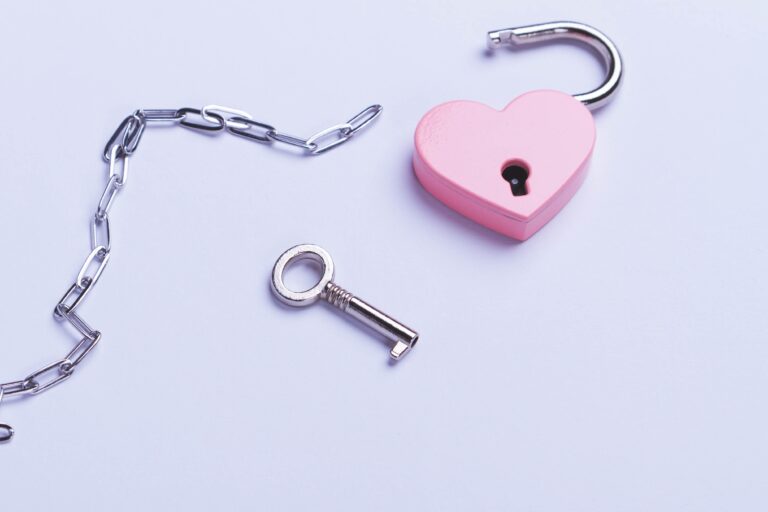(Don’t Hate me For Saying) You Need to Give More to Your Relationship

“This one thinks being dependent or having needs is weak,” she said, as she pushed herself forward on the couch, pointing toward her husband. “Because of this, I’m not supposed to ask him for anything. Is this really true? It just doesn’t make sense to me. If that’s what it is, then what is marriage?”
“No, it’s not true,” I said. “It is completely normal and healthy to be in a relationship and have wants and needs from your partner, and to depend on that person in many ways. To not be that way is a huge problem.”
She sat back against the couch and glanced at her husband as he looked away.
Deciding what is too much dependence, or independence, in adult romantic relationships is a huge issue, and most couples are lost when it comes to understanding it. Mention to some that they need to give more to their partner, to … dare I say, have a servant’s heart in their marriage, and they will become defiant, indignant, and reject the idea, saying, “Are you crazy? What kind of a therapist would say something like that? I will be no one’s servant, I only do what I want to do!” (I sigh.)
Tell another they need to be more independent and learn how to get their own needs met when their partner is unable to do so, and they look at you like, “How the heck do I do that?” (I am amazed.)
A therapist’s job can be like dodging bullets, especially when we present healthy ideas that our clients have previously thought were dysfunctional ideas. People often will buck and resist. What usually want when they come in for therapy is for the other person to change themselves to meet their needs or requirements, whether their needs or requirements are healthy, reasonable or not.
When this happens, all we can do is educate and present our case for what a healthy functioning relationship looks like, and hope they’re open to new thinking. Some people aren’t, so If a client rejects the new information and becomes defiant about what they will and will not do, I feel dark clouds rolling in. Why? Because it is a humble attitude, a, “What can I do to serve this relationship,” mentality that research and experience tell us makes the greatest, most fulfilling marriages. What never works is being on your high horse and drawing lines in the sand of possibilities; an open heart and attitude is critical.
When it comes to give and take, depending on another, and being independent, what is healthy in romantic relationships? Interdependence is considered to be the model for couples in the new millennium, and if you aren’t practicing it or aren’t interested in learning what healthy dependency in relationships looks like in adulthood, then proceed in relationships at your own peril. It is of vital importance and a major cog in the wheel of healthy relationships, and it’s a subject much like how to figure a square root or bake a pie, if you guess at how to do it on your own, you’re probably going to mess it up, so learn it we must.
The idea of interdependence is that you begin with two adults who are both able to be independent and take care of themselves – financially, emotionally, and physically. This is where so many adults fall off the rails – they lack the ability to be solid in one or all of these areas, which sets the relationship up for certain, predictable problems. Examples: Grown-ups who are dependent on other adults financially, people who can’t be alone, people who can’t take care of their basic daily needs on their own, people afraid to make decisions on their own or to even advocate for themselves when faced with an injustice …
You also have to have a person who is able to give and receive physically and emotionally, and who is not walled off and emotionally unavailable. If someone won’t share with you who they are, and be open and vulnerable, it’s a warning sign that you won’t find emotional intimacy with them.
If you do have two people who are solid in these areas, they can come together to create a more powerful unit of helping, sharing, contributing, supporting and leaning on one another. If either one falters, becomes sick, or just needs to lean on someone, the other can hold them up – what a great idea of being truly better together, with someone you can count on!
Most couples do not have this, and what I see time and again is dysfunctional dependency ranging from completely dependent on other adults in whatever way, or anti-dependent, with no needs or wants to receive from, lean on or depend on another adult in any way. Either extreme will lead to relational troubles, and often I have one of each in any given relationship I am working with.
I can always tell when someone is needless or want-less in counseling session, because one spouse will be giving me a laundry list of his or her needs and wants in the marriage, and when I turn to the other spouse and ask them what they need or want, they say, “I don’t need or want anything, I just want (put spouse’s name here) to be happy.”
People who are anti-dependent got there one of two ways: In childhood they were neglected and never got their needs or wants met, so they adapted to live without them, or they were shamed whenever they spoke of wanting or needing something, so they stopped wanting and needing. One client told me that he always wanted to wear the latest shoes, jeans or t-shirts that guys at his high school were wearing, but his dad shamed him for wanting to fit in, refused to contribute to it, and made him buy any new clothes at WalMart. To avoid the hurt and disappointment of wanting and needing and not getting, he turned off his needing and wanting valve, and evolved into a man who did not care about getting things for himself from others, and never turned it back on.
When I think of the dependent adult, I think of someone who is needy in a way that they want other adults to do for them what they could or should do for themselves. The anti-dependent adult is like an island within themselves, allergic to connection and needing anything from others. “I don’t need anyone, I can do it all myself,” they might say.
But grown adults do need other adults, and since we are born with needs and wants, that is the nature of human beings. If we don’t have that, we lost it. If we can’t take care of ourselves now that we’re grown, then it’s as if we never grew up. What we have to find when we become adults is the balance of getting enough of what we need or want, without being overly needy and expecting others to do things for you, or too frugal and denying with ourselves in a way that makes us uncomfortable asking for things from others or unable to feel needs and wants at all. Adults can tune in once again to what they want and need, and wake up that part of their humanity, and it’s well worth the effort.
So many adults in our culture spend much of their time helping and taking care of other people, including other grownups, and in this time-consuming process they put themselves last on the list. This is not a good recipe, and when people like this come to see me, I give them the healthy rules for being able to take care of themselves and for helping and taking care of other adults:
1. Avoid asking for help when you can take care of the need or want yourself. This keeps you from being too dependent.
2. Decline helping if you think you will be resentful (victim anger). This avoids overextending yourself.
3. Decline helping if you will enable the other adult to be dependent.
When it comes to children and teaching them to have healthy dependency, our job is to teach them how to care for themselves, to be able to be alone if need be, and to be with others in interdependent give-and-take relationships. We must nurture them continually as children, and then lovingly push them out of the nest on an age-appropriate level. This means letting them do things themselves, solve their own problems, figuring out solutions, all while you standby as a loving support if needed. This teaches the concept of people helping people, and the power of community, and discourages them from becoming an adult who can’t function on their own.






